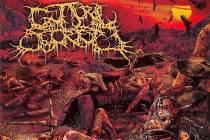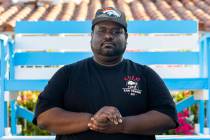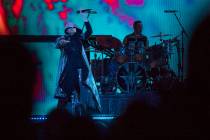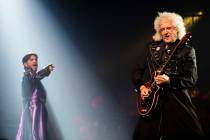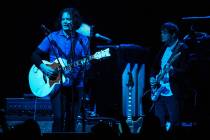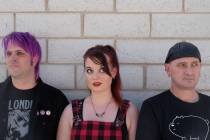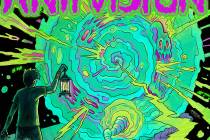Many Las Vegans think that DJs are not musicians — POLL

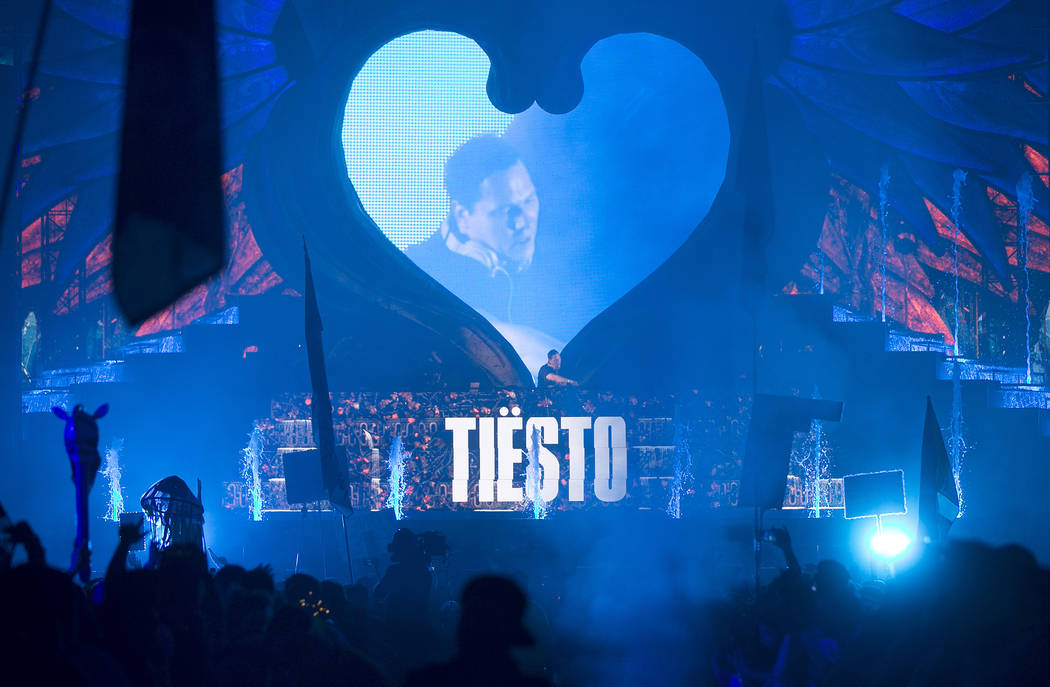
He speaks for many of you. And you’re kinda ticked off.
Recently, I received an email from an R-J subscriber regarding electronic dance music. In recent years, I’ve gotten quite a lot of feedback on the topic as Vegas has become the EDM capital of America thanks to its booming club scene and Electric Daisy Carnival, the music’s flagship event, which relocated here in 2011.
Whenever I cover anything EDM-related, I tend to get responses like this: “There is one thing that I cannot abide and that is EDM,” the aforementioned reader wrote. “There are no musicians in it whatsoever, it is simply vapid and without any redeeming qualities. There are certain types of music that I really don’t care for, but at least I can respect the fact that they are played by musicians that can play an instrument and can usually read music. This EDM is simply an affront to a real musician. To be accurate it is FAKE music.”
The author of this email asked for his name not to printed lest he earn social media blowback, but, rest assured, he’s not alone in voicing his take on the perceived dubiousness of the music in question. A whole lot of you have expressed similar sentiments IN ALL CAPS to let me know you mean business.
Now, I’m neither an EDM partisan nor a detractor — think of me as Switzerland when it comes to Diplo — so let’s take an objective look at the sound that’s come to define this city as much as any.
To begin, it’s necessary to examine how the role of the DJ has evolved over the years. Being a disc jockey back in the day was as straightforward as the designation implied. DJs, whether on the terrestrial radio airwaves, at nightclubs or special events that they were hired to soundtrack, were tastemakers and party-starters as opposed to musicians, whose music they played.
But with the rise of hip-hop in the late ’70s and house music in the early ’80s, the DJ was transformed from curator to creator. In hip-hop, this meant creating the beats that rappers rhymed atop of and also adding some scratching to the music both in the studio and during live gigs.
Likewise, house music (the granddaddy of EDM) was born from DJs initially taking preexisting tracks and enhancing them with their own flourishes, creating something new by incorporating different beats, mixing in various effects and adding synth lines, in some cases.
From these origins, the role of the DJ-as-producer became more and more prominent and central to the composition of the songs themselves. Plenty of them developed into full-fledged musicians, using keyboards, drum machines and samplers to create songs from scratch — in addition to continuing to rework existing material into something fresh, oftentimes creating club mixes of pop hits.
Flash forward to today: The DJ and the producer have become one in the same within the context of EDM. The big names you see headlining various Vegas properties — Tiesto, David Guetta, Calvin Harris, among others — all make music in the studio like rock bands and pop stars do and then incorporate those songs into their live sets (along with tracks created by other artists).
The means of production may be different, but the end result is the same. And so when you see an EDM act perform, it’s true that the music isn’t being created on the spot in most cases, but — spoiler alert! — when you go to a Beyonce concert, for instance, she’s not actually up there singing most of the time. Same with most of her pop peers. Does the fact that she’s lip-syncing to her prerecorded vocal tracks make them any less her own?
Besides, when performing live, DJs do more than just queue up a track list compiled in advance and hit “play.” There’s certainly an art to reading a crowd, determining on the fly what’s going to resonate with a given audience and what won’t, and pacing the show so there’s a natural ebb and flow to keep the party going strong.
Is it the same thing as ripping a tasty guitar lead in front of adoring throngs of fans?
No, but you know what is the same?
Those adoring throngs of fans.
And really, that’s the only thing that matters.
Contact Jason Bracelin at jbracelin@reviewjournal.com or 702-383-0476. Follow @JasonBracelin on Twitter.









